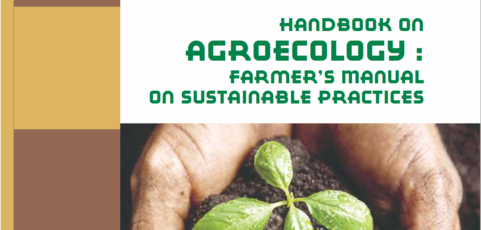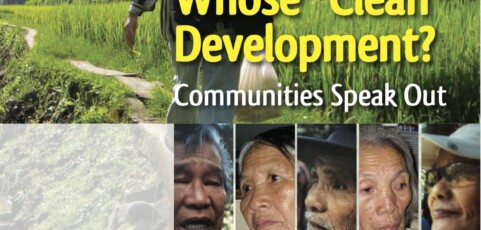This booklet from Focus on the Global South, is intended to serve as a basic background resource for grassroots groups, to make links between gender and agroecology, and to understand agroecology’s potential to address gender inequalities.
Climate Change and the Agriculture Crisis: Agroecology as a Solution (Hindi version)
This publication in Hindi tries to address important questions such as:
What exactly is the climate change crisis? How does it affect us? Are we causing it? How? How is it going to affecting our land, water, food and lifestyle? Can we anything about it ? How ? Why is the practice of agroecology so important in addition to clean energy?
Climate Change and the Agriculture Crisis : Agroecology as a Solution
What exactly is the climate change crisis ? How does it affect us ? Are we causing it ? How ? How is it going to affecting our land, water, food and lifestyle ? Can we anything about it ? How ? Why is the practice of agroecology so important in addition to clean energy ?
Should we wait for global agreements on mitigating climate change or act locally, intelligently and consistentl ? Small and marginal farmers must adapt their practices to deal with changing temperatures and more frequent extreme weather events. These adaptations must first and foremost build resilience within the agroecosystem, increasing its ability to continue functioning when faced with unexpected events. How can this be made possible ?
“Climate Change and the Agriculture Crisis – Agroecology as a Solution” throws light on these pressing issues. It is an important addition to our work on small-holder agroecology series of publications. Read the book to understand how agroecology farms hold immense mitigation and adaptation potential and therefore are better suited to deal with the climate crisis.
Handbook On Agroecology: Farmer’s Manual on Sustainable Practices
This booklet is aimed to educate and inform farmers about diverse possibility of sustainable and safe food production methods and its techniques. This handbook is designed as a practical guide to these different practices of agroecology and their specific principles, techniques and strategies.We hope that these practical techniques would help to address the needs of especially small and marginal farmers who are contemplating to switch over to low-cost agriculture. We also hope that sustainable agricultural practices mentioned here can easily be adapted by small farmers without involving much input costs.However the set of practices mentioned here are not the only valid roadmap available for adopting low-cost organic agriculture. A skillful agroecology practitioner can come up with their own innovative techniques by applying different agroecological principles to suite particular crops, soil conditions and available natural resources.
Whose “clean” development? Communities Speak Out
Three case studies from India, Philippines and Thailand on Clean Development Mechanism:
Our analysis, and that of many communities and organisations across Asia, is that the CDM is an extension of the generalised approach to big project and energy intensive development that has systematically marginalised indigenous peoples and local communities and over- exploited the Earth. The “clean development mechanism” is, quite simply, a mechanism that allows polluters to avoid binding emissions reductions in one location, while shifting emissions to another location. At the same time, it allows corporations and state entities to reap additional profits from projects that are questionable in terms of sustainability, community benefits or even addressing climate change.




